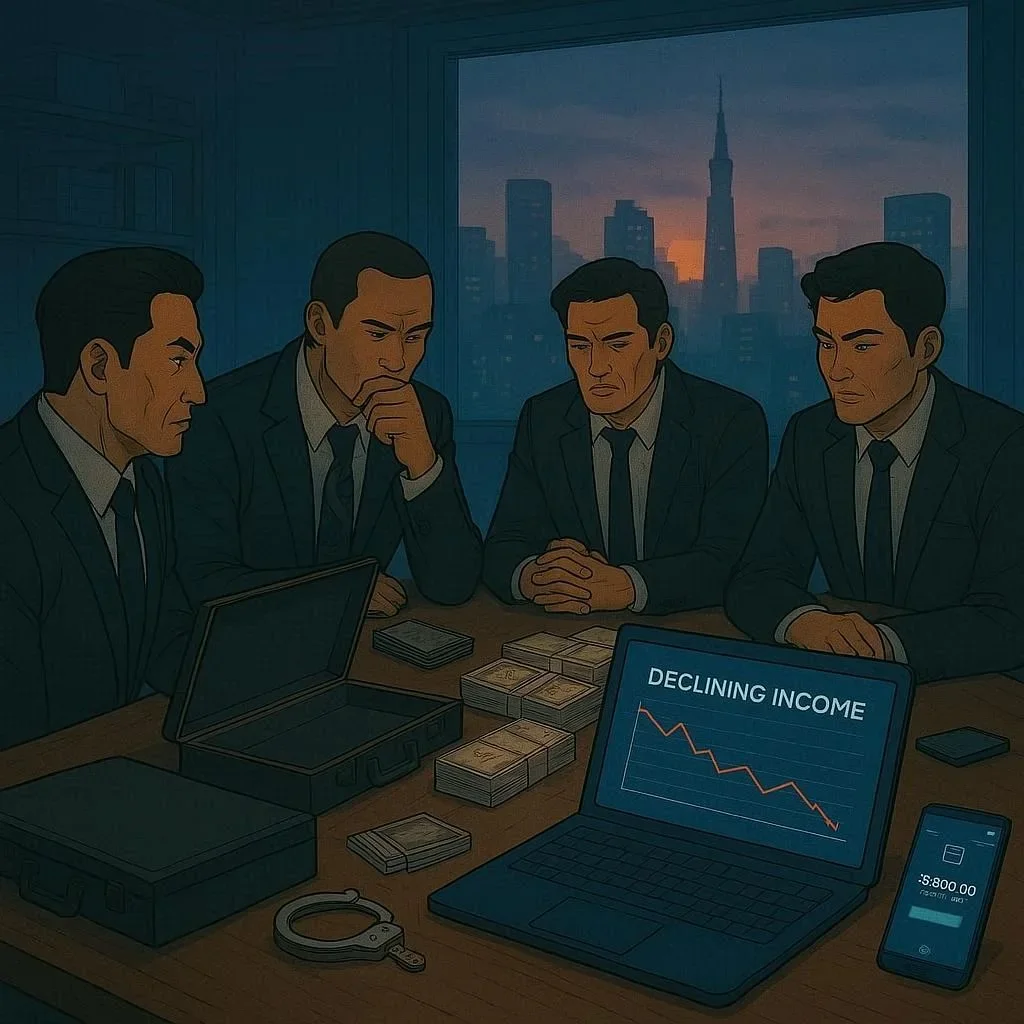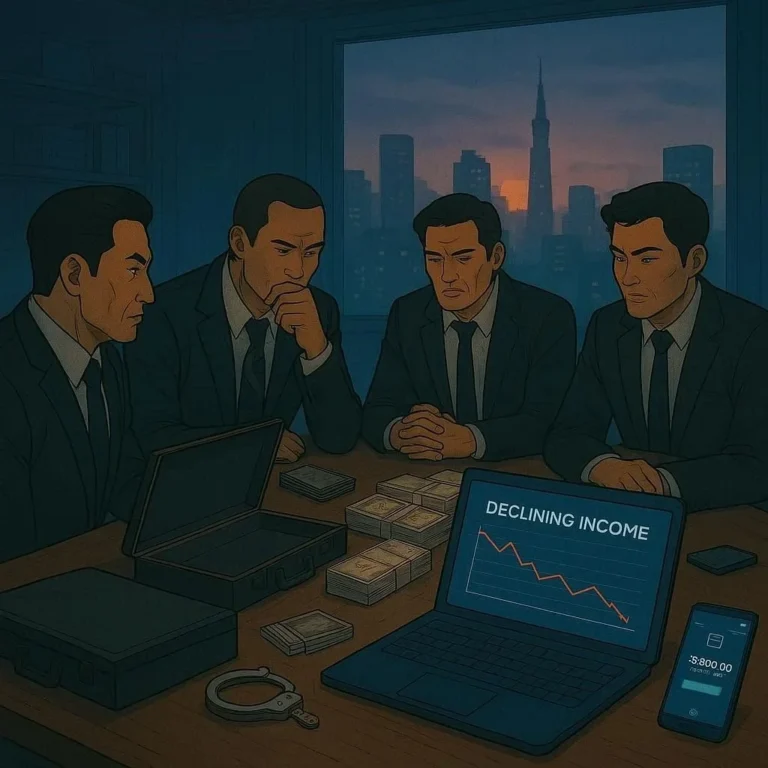506 views How Yakuza Engage in Community Outreaches
The Hidden Role of Yakuza in Community Development
The Yakuza, Japan’s infamous organized crime syndicates, are often portrayed as entities operating on the fringes of society, associated with illegal activities and a strict code of honor. However, beneath this surface lies a lesser-known aspect of their operations: community outreach and philanthropy. This blog explores how the Yakuza engage in community outreaches, challenging common perceptions and shedding light on their multifaceted role in Japanese society.
Understanding Yakuza Community Outreach
Yakuza groups, while primarily known for their criminal activities, have a long history of engaging in community services. These efforts often go unnoticed by the broader public but are significant in understanding the complexity of their social role.
Historical Roots of Yakuza Philanthropy
The Yakuza’s involvement in community outreach can be traced back to their historical origins. Emerging in the 17th century as groups of outcasts and gamblers, they gradually adopted a code of conduct known as giri, which emphasizes justice and the protection of the weak. Over time, this code has led some Yakuza groups to participate in public services, such as disaster relief and community support.
Modern-Day Community Involvement
In contemporary times, Yakuza groups continue to engage in various forms of community outreach. These activities often serve dual purposes: they help maintain a positive public image and reinforce the groups’ presence in local communities. Some common examples include:
Disaster Relief and Recovery
Yakuza organizations are known for their rapid response to natural disasters. For instance, during the 2011 Tohoku earthquake and tsunami, several Yakuza groups quickly mobilized to provide aid and support to affected areas.
Organized Charity Events
Some Yakuza groups organize or participate in charity events. These events often involve fundraising for local schools, hospitals, and other community institutions.
Neighborhood Clean-Up Campaigns
In some regions, Yakuza members have been involved in neighborhood clean-up campaigns. These efforts not only improve the physical environment but also strive to enhance the group’s standing within the community.
The Motivations Behind Yakuza Community Outreach
The Yakuza’s engagement in community outreach is driven by a combination of factors that go beyond mere altruism.
Maintaining Public Image
Engaging in community outreach allows Yakuza groups to present a more positive image to the public. By participating in socially beneficial activities, they seek to undermine the negative stereotypes associated with their criminal reputation.
Strengthening Community Ties
By contributing to local communities, Yakuza groups strive to strengthen their ties with residents. This can help them gain acceptance and support, which are crucial for their operations.
Reinforcing Internal Values
Community outreach activities also serve to reinforce the Yakuza’s internal values, such as loyalty and honor. These values are central to their identity and help maintain cohesion within the group.
The Cultural Significance of Yakuza Outreach
The Yakuza’s community outreach efforts hold significant cultural value in Japan.
Challenging Perceptions
The involvement of Yakuza groups in community services challenges the widespread perception of them as solely criminal entities. This duality of their role highlights the complexity of organized crime in Japan.
Bridging the Gap Between Tradition and Modernity
The Yakuza’s community outreach reflects a blend of traditional values and modern societal needs. By engaging in philanthropic activities, they aim to reconcile their historical identity with contemporary expectations.
The Challenges of Yakuza Community Outreach
Despite their efforts, Yakuza groups face several challenges in their community outreach endeavors.
Public Skepticism
Many people remain skeptical of the Yakuza’s motives for engaging in community outreach. This skepticism can undermine the effectiveness of their efforts.
Legal and Social Barriers
Yakuza groups often face legal and social barriers that limit their ability to engage in community activities. Law enforcement efforts to crack down on organized crime can sometimes hinder their participation in public services.
Internal Conflicts
There are also internal conflicts within Yakuza groups regarding the extent of their involvement in community outreach. Some members may view these activities as distractions from their primary objectives.
Conclusion: The Legacy of Yakuza Community Outreach
The Yakuza’s engagement in community outreach presents a fascinating paradox. While their criminal activities have earned them notoriety, their philanthropic efforts highlight a more nuanced aspect of their identity.
As Japanese society continues to evolve, the role of Yakuza community outreach may also change. However, their historical and ongoing contributions to local communities remain an important part of their legacy.
In conclusion, the Yakuza’s community outreach efforts offer a unique lens through which to explore the interplay between organized crime and societal expectations in Japan.
Frequently Asked Questions
What motivates Yakuza groups to engage in community outreach?
Yakuza groups are motivated by a desire to improve their public image, strengthen community ties, and reinforce their internal values.
How do Yakuza groups typically engage in community outreach?
Yakuza groups engage in community outreach through disaster relief, charity events, and neighborhood clean-up campaigns.
What are the challenges faced by Yakuza groups in their community outreach efforts?
Yakuza groups face challenges such as public skepticism, legal and social barriers, and internal conflicts.
How does Yakuza community outreach challenge common perceptions of organized crime?
Yakuza community outreach challenges common perceptions by highlighting the duality of their role, blending criminal activities with philanthropic efforts.
If you found this blog post informative, please feel free to share your thoughts or questions in the comments below. Your feedback is valuable to us.






